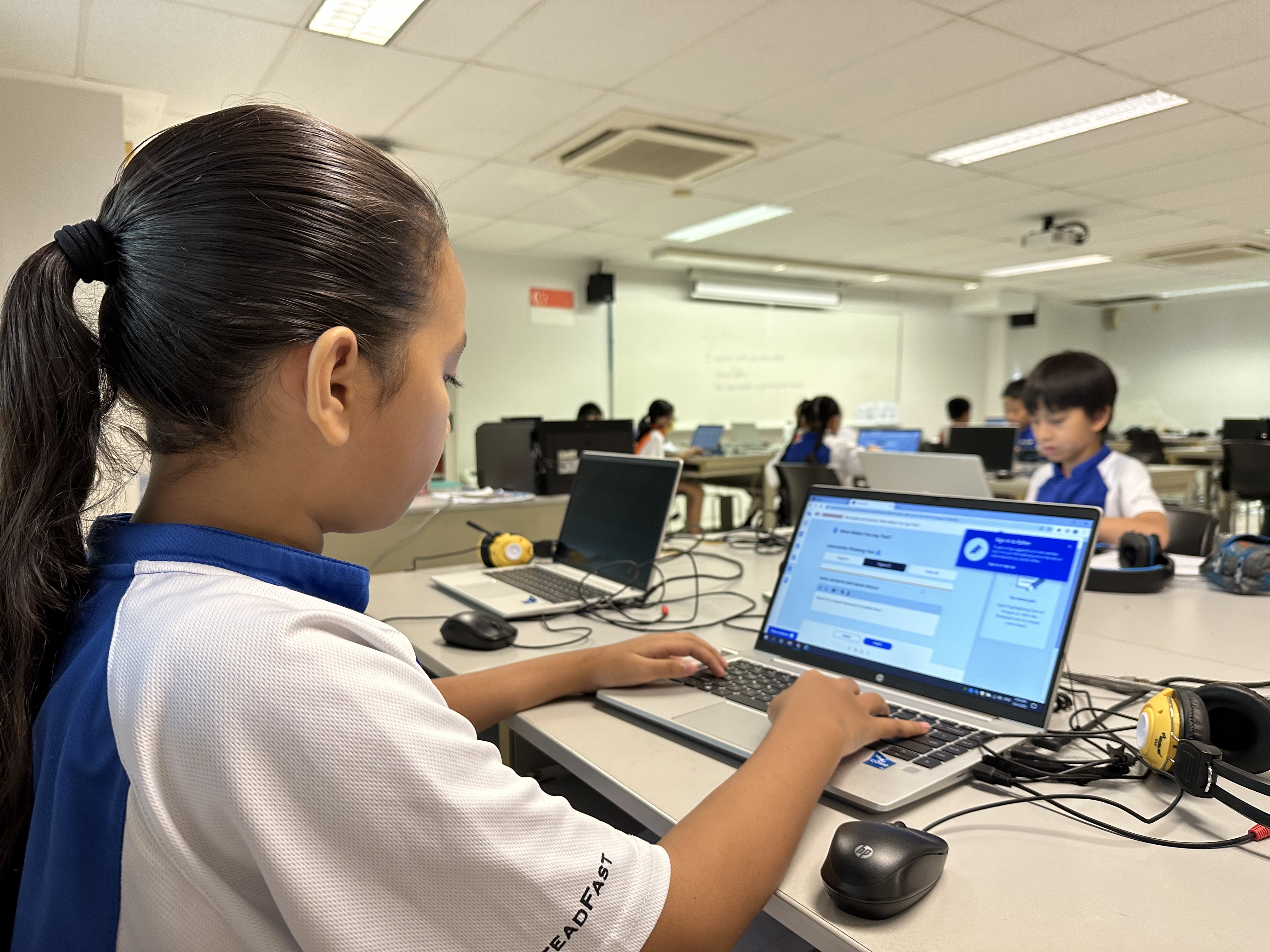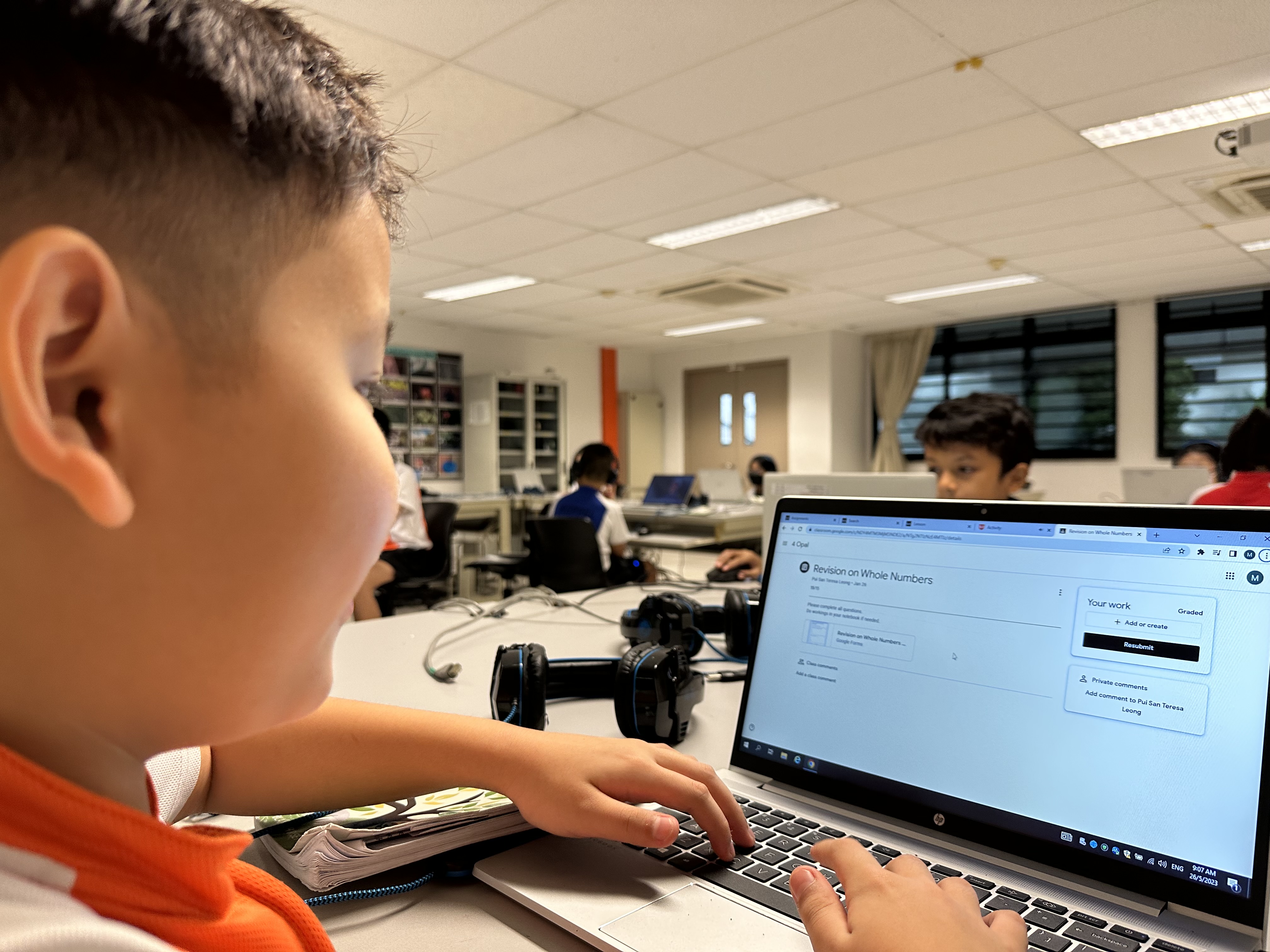Infocomm Technology
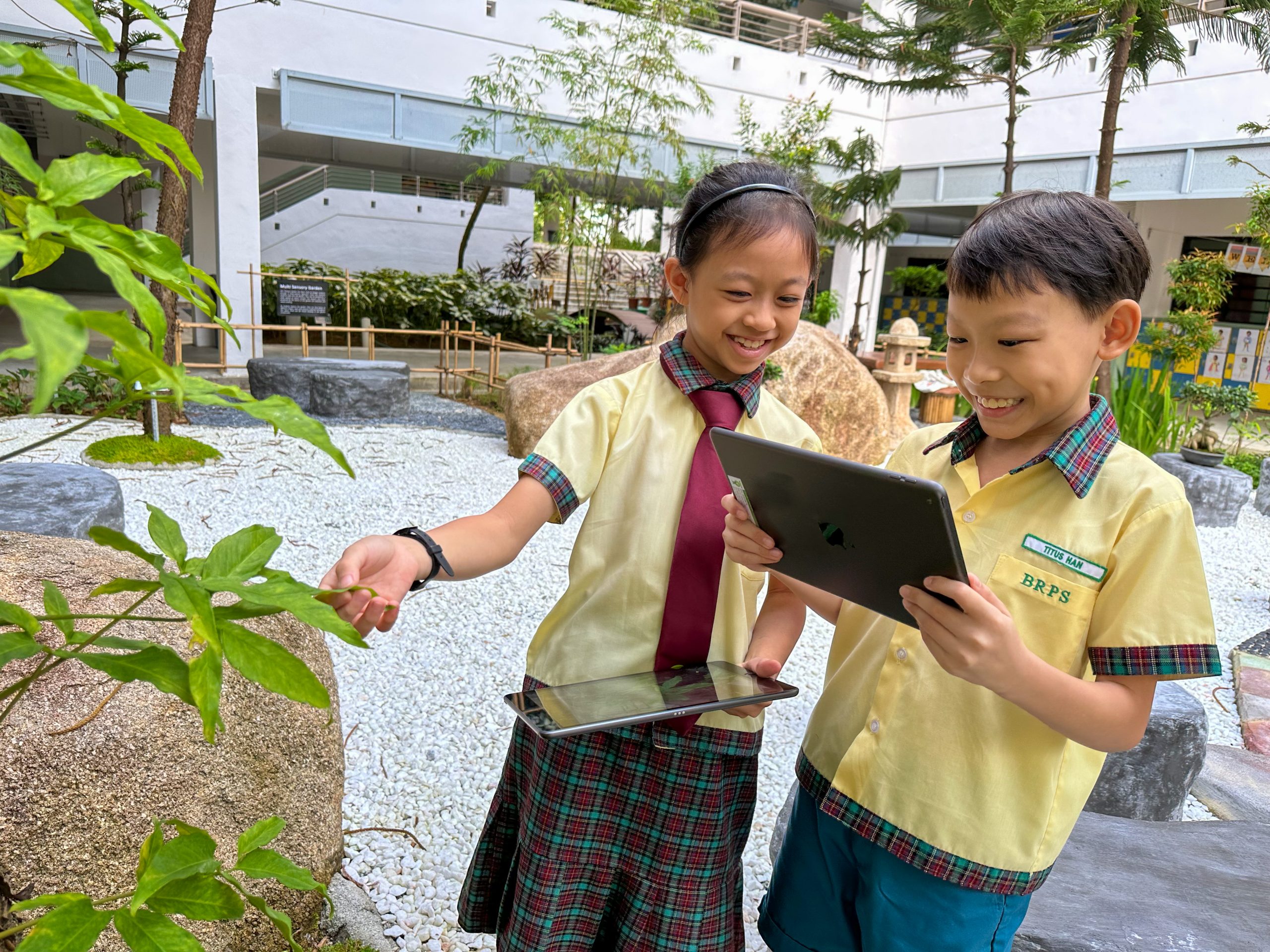
Developing Self-Directed and Collaborative Learners
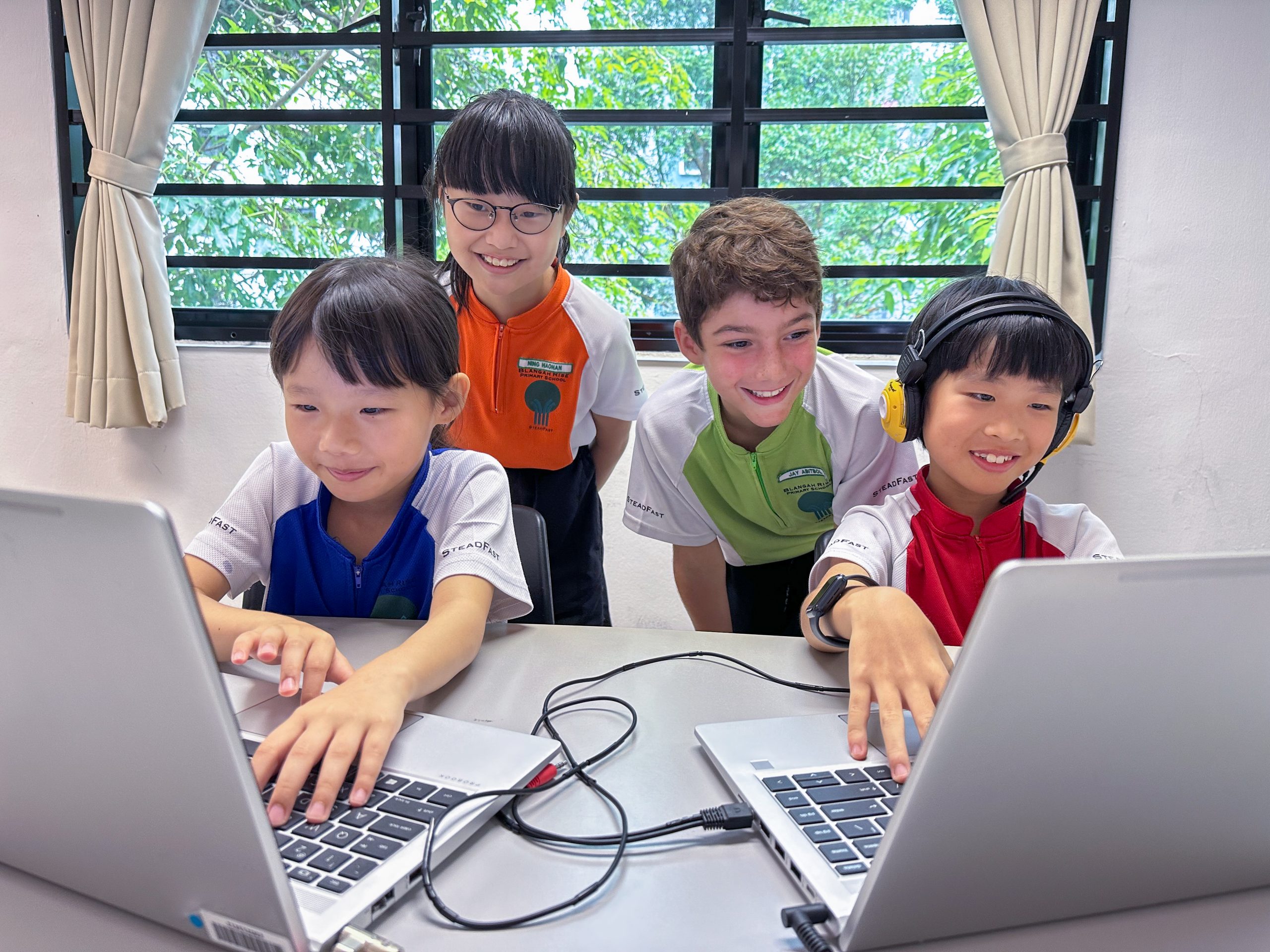
“We will be using the iPads for the next segment of the lesson and go through some of your homework - in Student Learning Space (SLS) and your workbook!” - This instruction never fails to get our students excited! Our teachers engage students in blended and flipped learning, whereby students are given the opportunity to explore concepts through self-directed learning at home. They deepen their knowledge and understanding when they are back in the classrooms through face-to-face discussions and collaborations. The classrooms are filled with lively and engaging discussions, where our students are sharing their ideas gleaned from SLS.
Effectiveness of ICT-based lessons
Technology is a powerful enabler which provides students with the opportunity to engage in self-directed and collaborative learning. They can learn anytime, anywhere on their own, and at their own pace. The online platforms are able to provide immediate feedback to our students so that they are aware of what they have done well and areas to grow in. Students are also able to share ideas and learn from their peers through online collaboration works. This gives them real time updates on their ideas and to work on their tasks assigned efficiently, as compared to pen and paper activities.
In addition, we could leverage the power of technology and Artificial Intelligence (AI) to provide instant feedback to our students and help them learn better. Technology also helps us to adapt our lessons and strategies to better support our students in learning.
Therefore, the way we leverage technology supports active learning, creating a participatory, connected, and reflective classroom which nurtures the future-ready learners.
Physical and Digital Spaces: Transforming the way students learn
From our Full Home-Based Learning experience, our students have developed the confidence to learn with technology in different learning contexts, with teachers blending learning seamlessly in both face-to-face and online spaces. Students shared that they were more confident in raising questions and building on their knowledge through online discussions.
Learning can indeed take place anytime and anywhere as students shared that they were very happy to see their teachers and peers online and learn from one another.
From our Full Home-Based Learning experience, we have continued leveraging technology to engage in self-directed and collaborative learning. There are Home-Based Learning days in a semester which provide our students and teachers the opportunity to engage in synchronous learning. “HBL days provide students the opportunities to develop the skills and mindsets to become more independent and self-directed learners. Students have the freedom to organise their learning schedule and they can engage in self-paced learning activities. From our HBL days experience, this has encouraged our students to take ownership of their learning journey and fosters a sense of responsibility towards their own learning,” said Ms Ho, a Mathematics Teacher.
Click here to read about a Video Conferencing session for a Science Lesson.
Click here to read about a Zoom Day for our students.
Building up ICT skills proficiency
In order for students to be confident in harnessing technology for learning, they acquire ICT skills through an enrichment programme. The skills are aligned to the MOE ICT Baseline standards and are integrated into the curriculum. Our Primary 1 students are introduced to PC Literacy and touch-typing so as to build up their mastery of navigation in the cyber world. As our students build confidence in harnessing technology, we engage our Primary 2 to 6 students in self-directed and collaborative learning through Google Classrooms. At Primary 2, students apply their touch-typing skills and write a short story using Google Documents.
Mdm Uuchi, a Primary 4 Engliah Language teacher shared, “Engaging in a collaborative writing task, our Primary 4 students explored the intersection of technology and literacy in meaningful ways by utilising Google Classroom and Google Slides. By integrating images, fonts and colours purposefully, they enhanced the visual appeal and effectiveness of their presentations. Through this activity, they not only refined their writing skills but also learnt to create multimodal texts, which are essential for effective communication in today's digital age.”
Clara, a Primary 4 student, said that using Google Classroom and Slides was both challenging and enjoyable. Designing unique, colourful slides required creativity and careful thought, and she found that balancing the design was tricky. Despite challenges, she felt that it was fun experimenting with layouts, fonts and colours. The process has enhanced her digital skills and allowed her to express creativity. She is excited to continue improving her presentation design skills.
Our Primary 4 to 6 students engage in a photojournalism learning activity through the use of Google Slides, as part of our learning activities in Young Photographers
<p>Values in Real and Cyber World
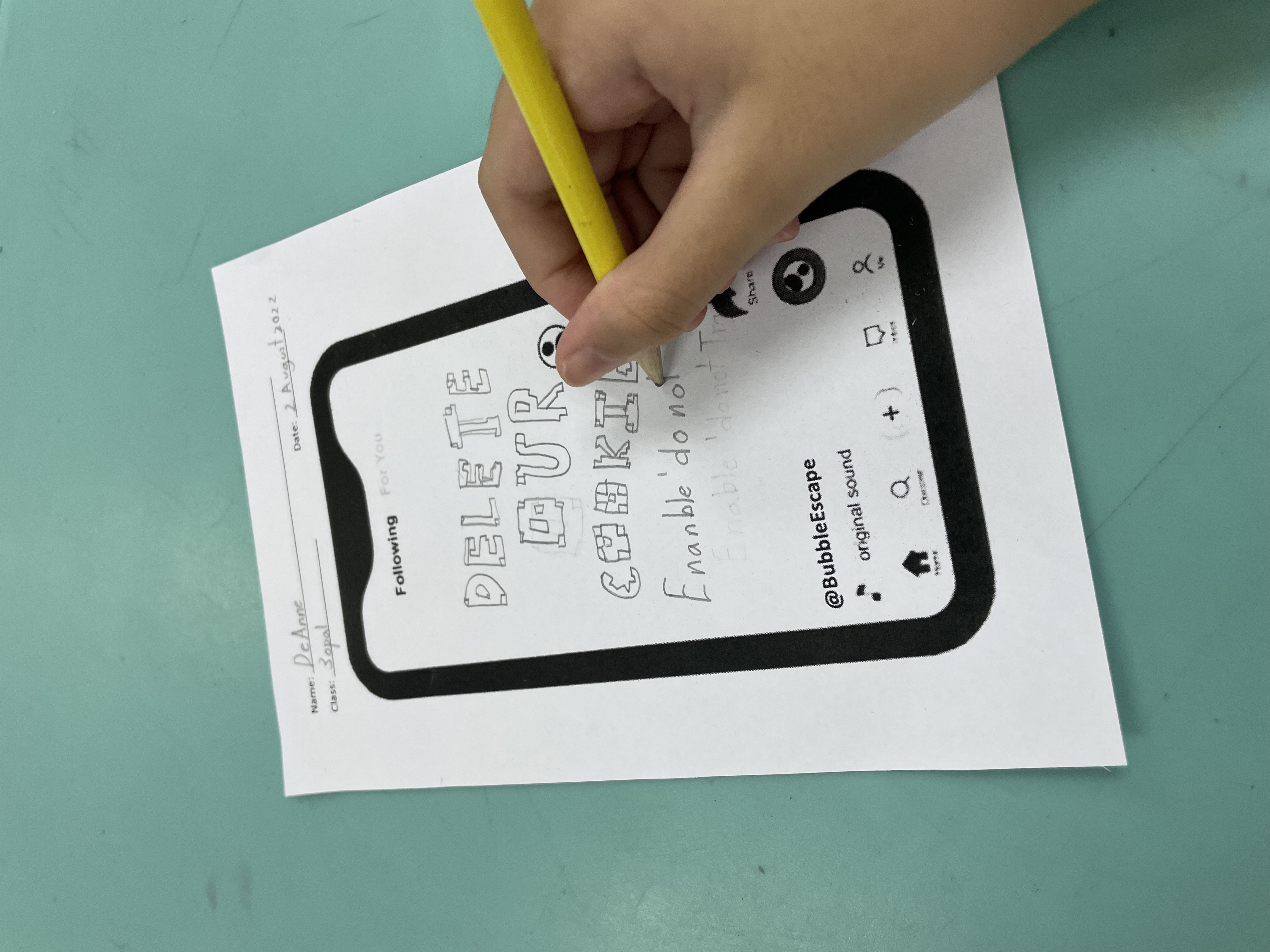 </p><p>
</p><p>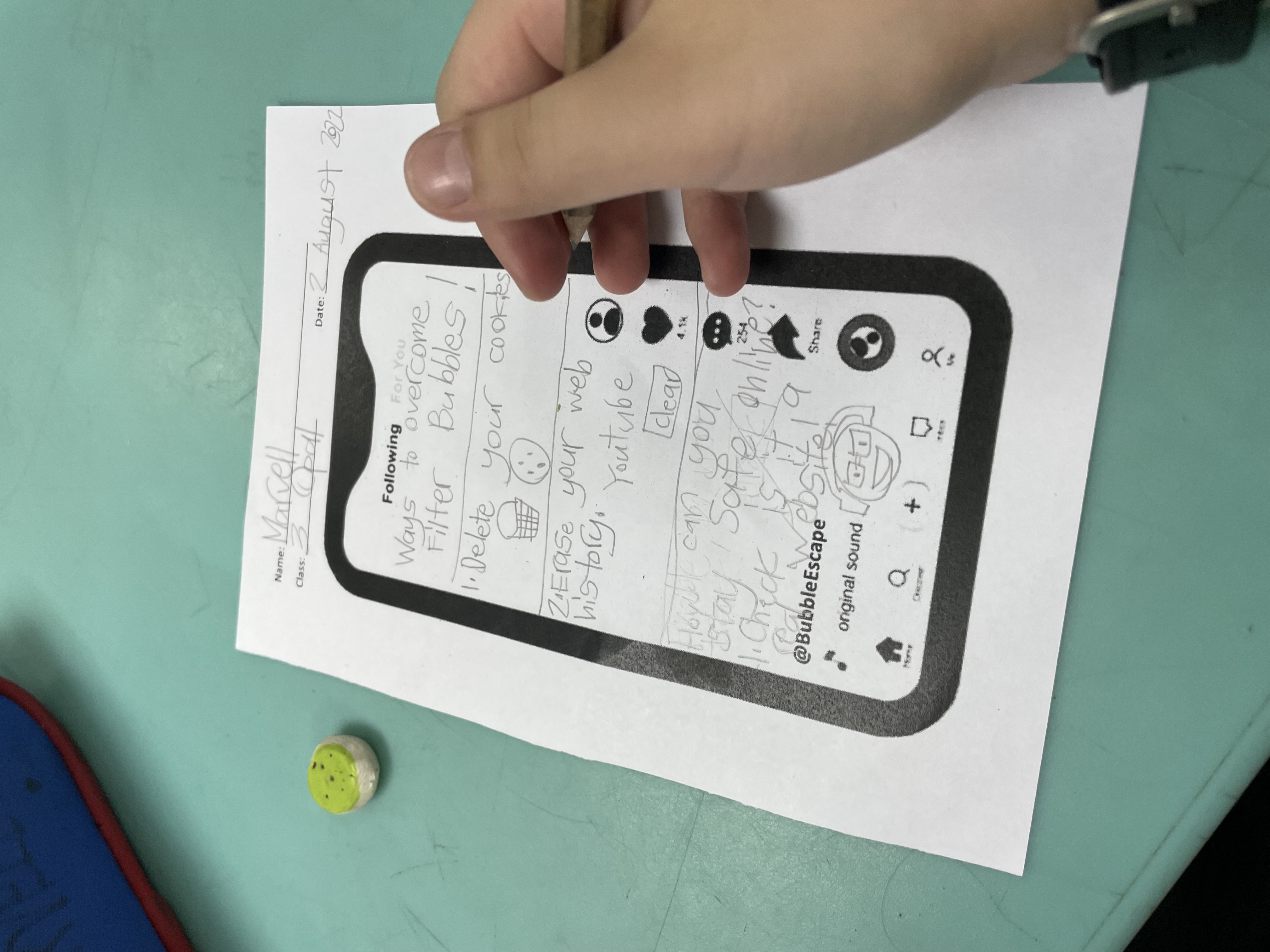 </p>
</p>
Technology has advanced greatly where communications and sharing of information is made possible through social media or a simple click of a button. It is important to equip our students with Cyber Wellness values to develop them to be responsible and discerning users of technology. Topics such as online identity and expression, balanced use of ICT, netiquette, copyright, cyberbullying and cyber contacts are taught to students in a fun and engaging manner. Students learn about these topics through interactive talks, ICT enrichment, Young Photographers, games and activities during recess. As the technology landscape progresses rapidly, it is important to educate our students to make responsible choices online. Our Cyber Addiction Prevention and Education (CAPE) educates students on how to be responsible users of technology.
National Cyberwellness Advocacy Challenege (NCAC) 2023 - Bronze Award
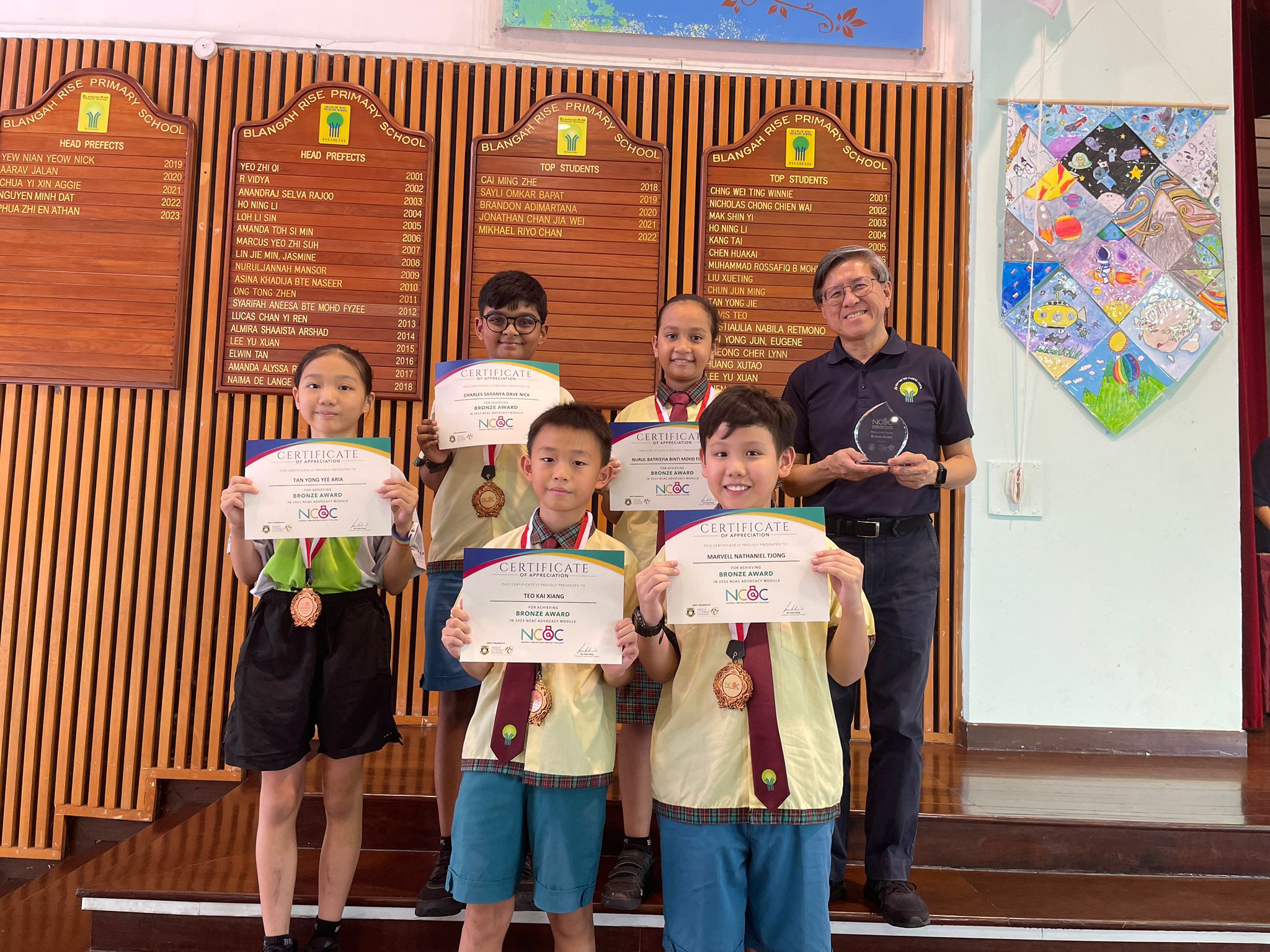
Introducing our Cyber Wellness Ambassadors' latest endeavor! Inspired by their dedication to promoting media literacy and cyber wellness, our Cyber Wellness Ambassadors, Kai Xiang, Marvell, Aria, Dave and Batrisyia, developed an innovative toolkit aimed at empowering individuals to navigate the digital landscape critically for NCAC 2023.
Through an engaging presentation during the school assembly, students were introduced to the importance of staying safe online. Following this, our students delved into hands-on learning experiences in the computer lab sessions, leveraging our comprehensive Google Site toolkit to discern facts from opinions and evaluate the reliability of online news.
Beyond the school gates, our outreach extended to families and the wider community. Parents were encouraged to access the toolkit from home, fostering meaningful discussions about responsible digital citizenship within households. Their good work was affirmed by attaining a Bronze Award at NCAC 2023.
Aria said, “Being a Cyber Wellness Ambassador, I have the opportunity to share with my peers about Cyber Welless and its importance. I have a learnt a lot from this role and working on NCAC.”
Our Cyber Wellness Ambassadors’ passion was affirmed by Kai Xiang. He shared, “I am proud to be a Cyber Wellness Ambassador! I was able to share with my friends how to stay safe online, and created a toolkit which was useful in identifying reliable information for our project works in school.”
With their dedication and innovative approach, our Cyber Wellness Ambassadors continued to lead the charge in promoting a safer and more informed digital environment for all.
Safer Internet Day 2024
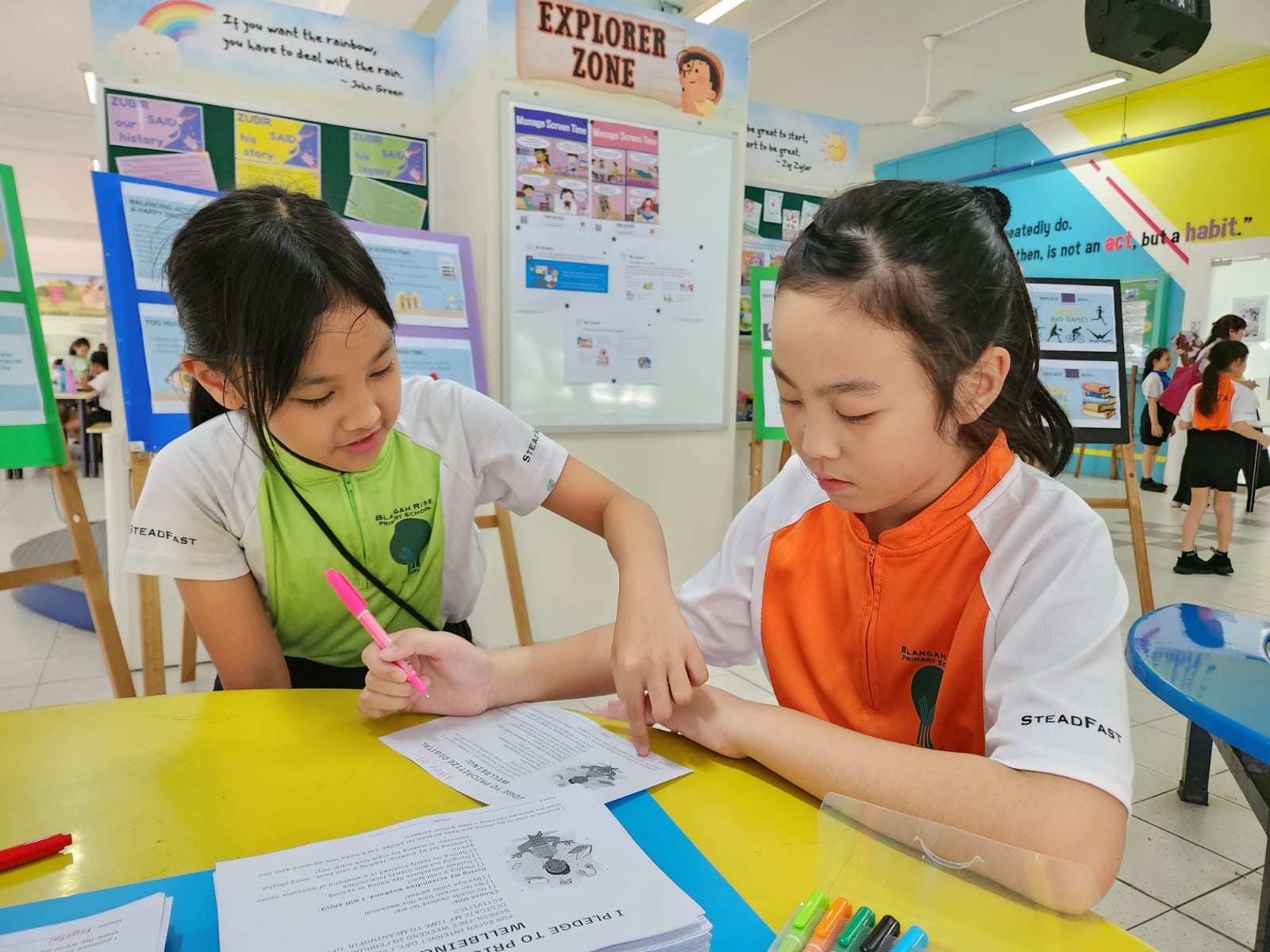
Safer Internet Day took place on 6 February and it is an annual global initiative which aims to promote safer and more responsible use of online platforms and mobile devices among children.
We commemorated Safer Internet Day starting with an announcement during assembly of its importance to foster a safer online environment for everyone. During recess, our Cyber Wellness Ambassadors and Peer Support Leaders provided great support, and engaged their peers in discussions on the importance of balancing their time online and how to cultivate a healthy and balanced relationship with technology. Our Cyber Wellness Ambassadors and Peer Support Leaders then guided their peers to make pledges for responsible screen use.


